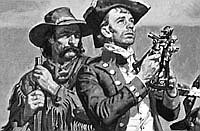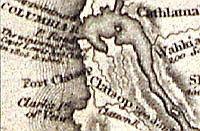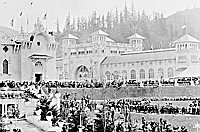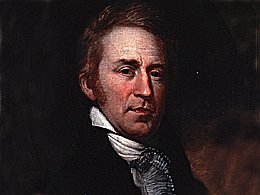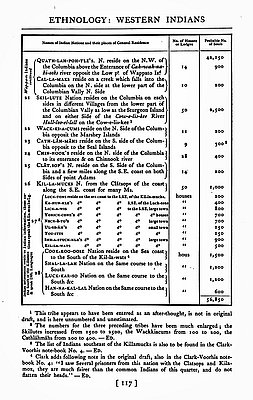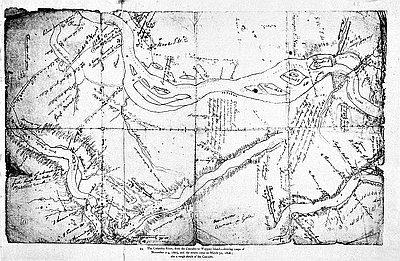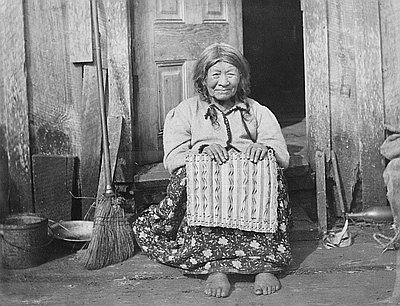The captains took advantage of their winter at Fort Clatsop by collating an impressive register of information they had gathered since leaving Fort Mandan the previous spring. The “Fort Clatsop Miscellany,” which they included in their Journals, included tables of estimated distances traveled by the Corps from Fort Mandan to the Pacific Coast, the names the captains applied to locations on their maps, and the “Estimate of Western Indians,” a detailed list of estimated village sizes and populations west of the Rocky Mountains.
The winter bore down on the Corps relentlessly and spring seemed to dally in coming. They so longed to leave the Pacific Coast and its disagreeable climate that they misjudged their departure date, leaving far too early to avoid snow in the mountains. In their unwise haste, they also violated one of their fundamental rules before leaving the Clatsop people. After trying unsuccessfully several times to purchase one of the Clatsop canoes, which they had described in marvelous detail and lauded, the captains approved stealing a canoe for their upriver journey.
There is no doubt that Lewis felt compelled and justified in his thievery, even if he had railed against the Indians of the Columbia River for much less egregious transgressions. The Clatsops had stolen elk from the Corps, Lewis figured, so taking their canoe evened the score. For the Clatsops, however, the canoes were more than transportation or technology; they were brideprices and burial vessels. “To sell a canoe,” as historian James Ronda reminds us, “was not the work of a moment or even a day.”
The captains surely knew the value of the canoes, so making off with a thirty-foot long cutwater canoe that could carry up to 10,000 pounds of gear and men could not have been considered equivalent to poached elk. This untypical episode is better understood, perhaps, as part of a larger pattern of growing distrust of Indian relations, a distrust that continued even after the Corps left the coast. An indication of this temperament runs through Lewis’s journal entry on February 20:
we well know, that the treachery of the aborigenes of America and the too great confidence of our countrymen in their sincerity and friendship, has caused the distruction of many hundreds of us. . . .we find it difficult to impress on their minds the necessity of always being on their guard with rispect to them. this confidence on our part, we know to be the effect of a series of uninterupted friendly intercouse, but the well known treachery of the natives by no means entitle them to such confidence, and we must check it’s growth in our own minds, as well as those of our men, by recollecting ourselves, and repeating to our men, that our preservation depends on never loosing sight of this trait in their character, and being always prepared to meet it in whatever shape it may present itself.
© William L. Lang, 2004. Updated and revised by OHP staff, 2014.
